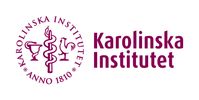New doping test can reveal more cheating female athletes
Roughly three times as many male athletes are banned for doping as female. A new doctoral thesis from Karolinska Institutet shows that one possible reason for this is that the doping tests in use fail to take account of women’s varying hormone profile. Instead, an alternative is proposed that includes a blood test and a limit value that allows doping tests for both elite athletes and casual sportspersons.

Despite the debate of recent years on testosterone levels in elite female athletes, there are only a handful of scientific studies on the topic. However, Jona Elings Knutsson's doctoral thesis clearly shows that testosterone enhances physical performance in women. One of her studies published in 2019 demonstrated that supplementary testosterone increased stamina in female runners by an average of 8.5 per cent.
”However, what surprised us most of all was how few of our testosterone-supplemented participants were detected when we put them through a doping control,” says Jona Elings Knutsson, a specialist in obstetrics and gynaecology and PhD student at the Department of Women's and Children's Health, Karolinska Institutet.
The double-blind testosterone study included 48 healthy, physically active women between the ages of 18 and 35, half of whom were given a testosterone skin cream and half a placebo. After the ten-week study, their pre- and post-treatment aerobic performance was compared. The women then took a routine test at Karolinska University Hospital's World Anti-Doping Agency (WADA)-accredited doping laboratory. Only two of the 24 women who had enhanced their performance with testosterone received a positive test result.
”The reason is that current doping tests are developed for men, and don't take account of women's varying hormone profile,” explains Jona Elings Knutsson.
The female hormone profile changes during menstruation, and when going on or off the contraceptive pill. To find an alternative to current urine tests, 340 women were randomly assigned to take a contraceptive pill or placebo for three months. When the samples were analysed, a relationship between the steroid hormones testosterone and androstenedione in the blood was found that remained unchanged irrespective of contraceptive intake or menstrual phase. Since the finding was published, it has been confirmed by other research groups and in 2023, the WADA introduced the blood test in the doping controls used for elite athletes, whereby each new test is compared with each athlete's normal values.
”It's wonderful to see how your research can have such an impact,” says Jona Elings Knutsson. ”But so far there's been no limit value that allows the test to be used for non-elite athletes and sportspeople, who have not taken any previous tests to compare the new ones with. On the back of our first testosterone study, we've now come up with a value that can also be used for routine doping tests.”
The research was financed by World Athletics, the Swedish Research Council, the Swedish Research Council for Sport Science, the Swedish Defence Research Agency and Karolinska Institutet.
The principal supervisor was Angelica Lindén Hirschberg at the Department of Women's and Children's Health, Karolinska Institutet. The public defence will take place on 14 June 2024.
Doctoral thesis: Testosterone is performance enhancing in women but challenging to detect in doping analyses
Contacts
For more information, please contact:
Jona Elings Knutsson, PhD student
Department of Women’s and Children’s Health, Karolinska Institutet, Sweden
Email: jona.elings.knutsson@ki.se
Phone: +46 739 204111
Images

Karolinska Institutet (https://ki.se/en) is one of the world’s leading medical universities. Our vision is to advance knowledge about life and strive towards better health for all. Karolinska Institutet accounts for the single largest share of all academic medical research conducted in Sweden and offers the country’s broadest range of education in medicine and health sciences. The Nobel Assembly at Karolinska Institutet selects the Nobel laureates in Physiology or Medicine.
Subscribe to releases from Karolinska Institutet - English
Subscribe to all the latest releases from Karolinska Institutet - English by registering your e-mail address below. You can unsubscribe at any time.
Latest releases from Karolinska Institutet - English
Using social media may impair children’s attention8.12.2025 06:01:00 CET | Press Release
Children who spend a significant amount of time on social media tend to experience a gradual decline in their ability to concentrate. This is according to a comprehensive study from Karolinska Institutet, published in Pediatrics Open Science, where researchers followed more than 8,000 children from around age 10 through age 14.
POTS common in patients with long COVID3.10.2025 11:33:37 CEST | Press Release
A new study from Karolinska Institutet in Sweden shows that an unusual heart rhythm disorder, POTS, is particularly common in people with long COVID. The majority of those affected are middle-aged women. The study is published in the scientific journal Circulation: Arrhythmia and Electrophysiology.
Simple test can predict risk of severe liver disease29.9.2025 09:00:00 CEST | Press Release
A new study from Karolinska Institutet, published in the scientific journal The BMJ, shows how a simple blood analysis can predict the risk of developing severe liver disease. The method may already start to be applied in primary care to enable the earlier detection of cirrhosis and cancer of the liver.
Press invitation: Announcement of the Nobel Prize in Physiology or Medicine 202523.9.2025 13:00:00 CEST | Press Invitation
The Nobel Prize in Physiology or Medicine 2025 will be announced on Monday October 6 at 11.30 am CEST (at the earliest).
How mutations in bodily tissues affect ageing20.8.2025 11:00:00 CEST | Pressmeddelande
Two new studies from Karolinska Institutet in Sweden have investigated how mutations that occur in muscles and blood vessels over time can affect ageing. The studies, which are published in Nature Aging, show that such mutations can reduce muscle strength and accelerate blood vessel ageing. The results can be of significance to the treatment of age-related diseases.
In our pressroom you can read all our latest releases, find our press contacts, images, documents and other relevant information about us.
Visit our pressroom